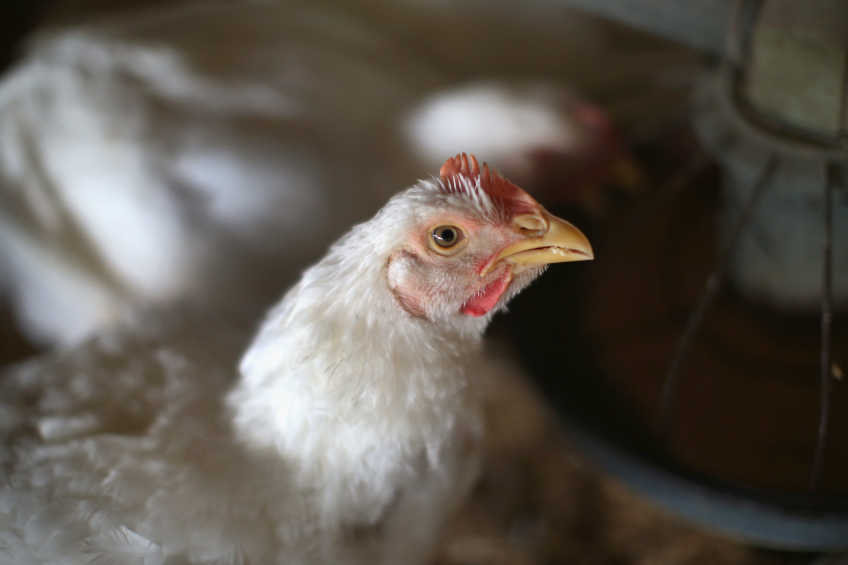New research uncovers poultry resistant to AI

Some chickens are almost completely resistant to a serious strain of avian influenza, new research has shown.
The study, carried out at the Pirbright Institute, found birds that carried the strain of avian influenza but were genetically resistant to the disease only shed the virus through their respiratory tract and for a limited period of time.
The researchers discovered that this was the only relevant means of spreading the virus and that resistant birds were therefore completely unable to initiate or sustain a chain of infection.
Genetic restriction
Further results in the study suggest that this could be due to a genetic restriction within the animal that stops the virus spreading when inside the body. Birds that were susceptible to the disease shed the virus in faeces and over a longer period of time.
Professor Venugopal Nair, head of the Avian Viral Diseases programme at the Pirbright Institute, said: “The findings of this study emphasise the importance of examining the intricate nature of the virus-host interactions and the potential role of the host genetic factors influencing the transmission dynamics and outcomes of important diseases such as avian flu.”
Major implications for poultry breeding
The findings, reported in the journal Scientific Reports, pave the way for further investigation, and work is planned to discover and examine the precise biological mechanisms behind genetic resistance. This could have major implications for poultry breeding, as well as human flu treatments, in the future.
Dr Colin Butter, from the School of Life Sciences at the University of Lincoln, which was heavily involved in the research, said the results of the research were significant. “Until now we knew relatively little about how a bird’s genetics can affect its reaction to flu virus, but this new research, which for the first time shows that some poultry lines are genetically resistant to avian flu, represents a significant step forward,” he said.
“Limiting risk to human population”
“The prospect of breeding birds with natural immunity to influenza virus would certainly widen the scope of existing control measures and perhaps limit the risk to the human population of the emergence of pandemic viruses.
“Furthermore, as human genetic determinants for catching flu are comparatively unknown, research such as ours, which is developing a better understanding of the genes and mechanisms involved, could also lead to improved therapeutic options in humans.”
The study also involved specialists from the University of Oxford and the Francis Crick Institute in London and was funded by the Biotechnology and Biological Sciences Research Council.












